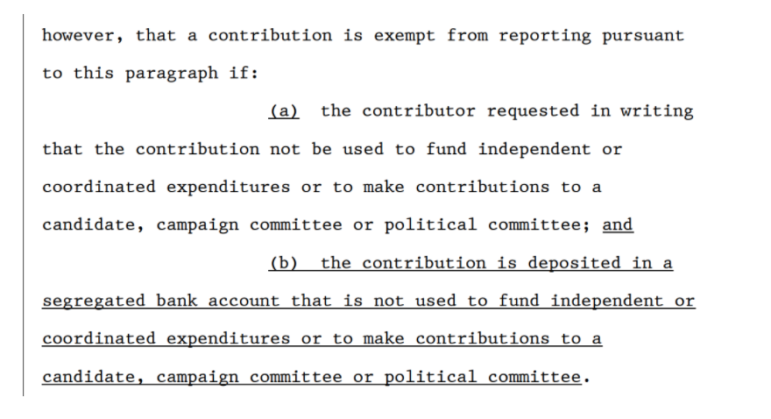Sen. Majority Leader Peter Wirth, D-Santa Fe, is seeking to tighten a so-called “loophole” in New Mexico’s campaign finance laws that allowed a dark money group to hide its donors during the 2020 election.
“I do think we need to continue our work to be sure that voters know who’s donating to independent expenditure committees,” Wirth said during a hearing today before the Senate Rules Committee. “This bill is a baby step.”
In 2020, the nonprofit Committee to Protect New Mexico Consumers (CPNMC) argued it didn’t have to disclose who funded $264,000 spent on mailers sent to voters, taking advantage of an exception in the campaign reporting act that allows a group to keep donors secret when they request in writing that their contributions not be used for political spending.

Wirth’s Senate Bill 387 would require outside spenders to separate those kinds of contributions from money given for political spending, keeping them in a segregated bank account in order to be legally shielded from disclosure, leaving less room for groups to use that exemption to their advantage.
“It’s an attempt to just figure out where the dollars are coming from,” Wirth said about the fix to outside spending transparency laws that Wirth championed for more than a decade and that became law in 2019
Secretary of State Maggie Toulouse Oliver spoke briefly in support of the bill, praising Sen. Wirth’s prior work on bringing more transparency to political spending. With minimal comment from committee members, the bill received a “Do-Pass” recommendation on a 5-2 vote and will next be heard by the Senate Judiciary Committee.
The “loophole” was brought to light following a settlement between the State Ethics Commission and the Committee to Protect New Mexico Consumers, a dark money group that advocated for a constitutional amendment, also championed by Wirth, to reform the New Mexico Public Regulation Committee. Some suspect the nonprofit’s campaign was being funded, in part, by electric utility Public Service Company of NM, which is regulated by the PRC, but the nonprofit has refused to disclose its donors.
While the ethics commission was able to reveal the utility’s funding of another dark money group through a lawsuit, the commission opted not to take CPNMC to court due to the loophole Wirth is now seeking to close. Instead, the commission settled with CPNMC in the interest of making their spending–– but not their donors–– public before the November election.
“If we need to fix this, this is the window to do it,” Wirth said in December when asked whether the loophole would be addressed this session.
During Monday’s hearing, Wirth also signalled that he remained interested in tackling broader campaign finances issues in the future, including the prevalence of “gray money” in elections. Gray money describes a situation when a political action committee is primarily funded by other groups that may or may not disclose their donors, requiring interested citizens to sift through several layers of disclosure reports, potentially across multiple jurisdictions, to try to find out who ultimately funded an effort. Often, the source of those funds are never brought to light.
“California has a very detailed and extensive gray money statute, and I did look at potentially doing something more detailed,” said Wirth. However, he ultimately opted not to pursue the issue, seemingly acknowledging the same concerns held by reform advocates about public input being limited during the pandemic.
“You kind of need to have your constitutional lawyer sitting next to you at every step moving forward, because it’s that tricky.”
